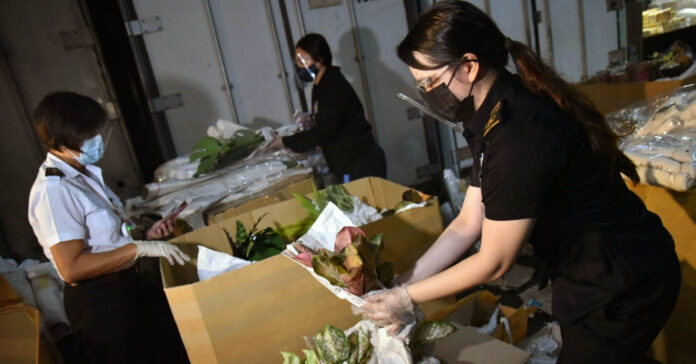
-
More than 2,000 live ornamental plants were apprehended by the Bureau of Customs-Ninoy Aquino International Airport for lack of import permit
-
Imports of the shipment violate the Customs Modernization and Tariff Act and Department of Agriculture circulars
-
All seized items were turned over to the Bureau of Plant Industry for quarantine and immediate disposal to prevent spread of possible plant diseases and pests in the country
A total of 2,032 live ornamental plants of different varieties were apprehended at a warehouse in Pasay City by the Bureau of Customs-Ninoy Aquino International Airport (BOC-NAIA) on May 19 for lack of the required import permit.
Records showed the shipment was supposed to contain only 100 live ornamental plants, but physical examination revealed 2,032 pieces of various ornamental plants including alocasia, aglaonema, pothos, calathea, philodendron, crimson, monstera, cactus, sanseveria, and rubber plant, BOC said in a statement.
The plants were confiscated for violation of Section 1113 (Property Subject to Seizure and Forfeiture) in relation to Section 1400 (Misdeclaration) of the Customs Modernization and Tariff Act. They were also apprehended for lack of import permit from the Bureau of Plant Industry (BPI), which was in violation of Department of Agriculture Department Circular No. 4, Series of 2016 and DA Administrative Circular No. 5, Series of 2020.
BOC-NAIA reminded the public a sanitary and phytosanitary import clearance from BPI is required prior to importing any plant.
All seized items were immediately turned over to BPI for quarantine and immediate disposal to prevent the spread of possible plant diseases and pests that can severely affect local agriculture.




